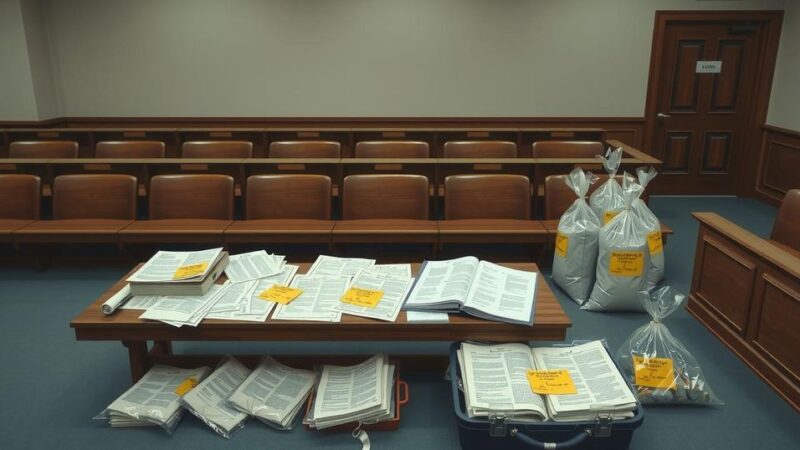A landmark agreement between Syria’s interim government and the Kurdish-led SDF aims to unify the country and recognize Kurdish rights, yet uncertainty surrounds its implementation due to recent constitutional developments and challenges in governance. Experts indicate potential economic benefits, but also highlight military integration complexities and the need for genuine national consensus.
On March 10, a significant agreement was established between Syria’s interim government and the Kurdish-led Syrian Democratic Forces (SDF) to unify the Syrian Arab Republic. However, the actual implementation of this deal remains questionable, particularly in light of a recent constitutional declaration by President Ahmad Al-Sharaa, who seeks to gain legitimacy amid concerns over the violent repression of minority Alawites by allied militias.
Analysts believe that the agreement could dramatically alter Syria’s future if successfully enacted. Nanar Hawach from the International Crisis Group emphasized that the context in which the deal was signed—amid escalating security challenges—signals its importance, particularly given recent violence against Alawites and aggressive foreign interventions.
The signing event, which included SDF commander Mazloum Abdi, permits Al-Sharaa to position himself as a leader promoting comprehensive representation of diverse identities in a reconciled Syria. A testament to Abdi’s reputation, he is respected across various communities, including Alawites and Druze.
Condemnation of a systematic campaign against minorities has emerged from various Kurdish groups, underscoring their commitment to defending Alawites amidst increasing violence. Following a deadly ambush in Jableh, where thirteen were killed, retaliatory violence intensified, resulting in significant casualties, reported to exceed 1,300 individuals.
Rami Abdulrahman of the Syrian Observatory for Human Rights indicated that many displaced Alawites now perceive SDF-controlled areas as potential safe havens. The Damascus-SDF agreement, anticipated to be in effect by the year’s end, recognizes the Kurdish community as an integral part of Syria’s national framework, assuring their citizenship and constitutional rights.
The agreement also calls for an end to hostilities in areas controlled by the SDF, which has faced assaults from the Turkish-backed Syrian National Army. Hawach noted that this recognition represents progress for Syrian Kurds, marking an advancement in rights that they previously lacked under Assad’s regime.
Economic implications are significant, with university experts asserting that access to oil resources will play a vital role in funding Syrian reconstruction. Joshua Landis remarked that this arrangement allows the interim government to control oil fields while sharing half of the proceeds with the Kurds, facilitating foreign investment in Syria’s beleaguered energy sector.
Compounded by years of conflict and sanctions, the oil sector’s production has sharply declined, thus reviving it is crucial for Syria’s reconstruction efforts, estimated to cost up to $400 billion. The agreement’s potential economic benefits could pave the way for collaboration against extremist threats, according to analysts.
International reactions have been largely positive, with entities like the UN and several governments viewing this deal as a hopeful step toward national reconciliation following over a decade of fragmentation. However, the deal’s effectiveness relies on resolving ongoing practical issues relating to reintegration.
Nevertheless, experts propose that significant details remain unresolved, notably military integration. Landis highlighted that the agreement dictates SDF forces must join the Syrian Defense Ministry, raising questions about operational control. The Kurds seek a degree of autonomy while also acknowledging that concerns linger regarding centralized control by the interim government.
Further complicating matters, Al-Sharaa’s temporary constitution, which asserts an Islamist governance framework, sparked opposition from the SDF’s political arm. They argue that it undermines previous attempts at power-sharing and fails to represent the diverse political spectrum essential for true national consensus.
In summary, the recent agreement between Syria’s interim government and the Kurdish-led SDF appears to hold significant implications for the future of national reconciliation and governance in Syria. While the deal promises recognition of Kurdish rights and economic benefits, its successful execution requires careful navigation of unresolved military and governance issues. The broader political landscape remains contentious, exemplified by backlash against the recent constitutional declaration, suggesting that while the potential for progress exists, substantial challenges remain in achieving durable peace.
Original Source: www.arabnews.com






